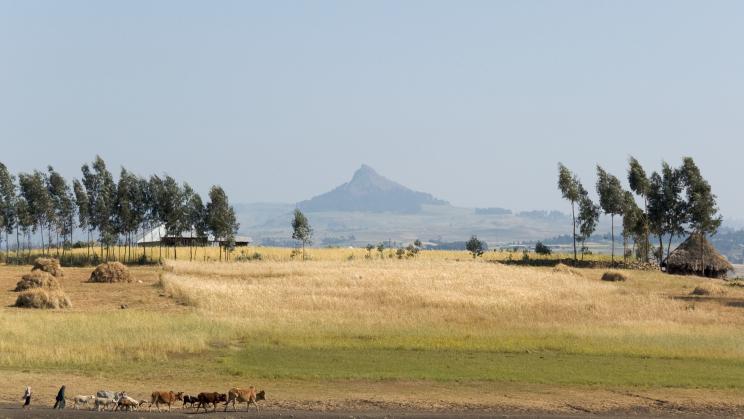
On 22–23 May, SIPRI, in cooperation with the Friedrich-Ebert-Stiftung Kenya Office (FES Kenya) and the Pan African Climate Justice Alliance (PACJA), convened a two-day workshop in Nairobi, Kenya, to seek ways of better integrating the risks posed by climate change into peace and security processes in the Horn of Africa.
Participants in the workshop, which was held under the Chatham House Rule, represented a diverse group of policy, academic and civil society experts from different countries of the Horn of Africa, and discussed new ideas and regional cooperation opportunities on the issue of climate change and risk.
Horn of Africa Climate Security Dialogue
Climate change-related security risks have far-reaching implications for the way the Horn of Africa can manage peace and security in the future. Together with SIPRI's partners FES Kenya and PACJA, the goal of this workshop and other regional dialogues on climate security is to develop new ideas and identify relevant areas for incorporating the impacts of climate change into collective security mechanisms, in order to improve climate security in the Horn of Africa. Through a series of regional dialogues, a working group is able to facilitate an exchange between its members, as well as different stakeholders and experts—including political decision makers—with the objective of triggering new thinking about regional, continental, global and collective opportunities for action in order to address and mitigate climate-related security risks more holistically.
SIPRI’s work in the Horn of Africa
SIPRI's work in the Horn of Africa has previously looked at climate-related security risks and regional responses through the Intergovernmental Authority on Development (IGAD). Currently, SIPRI is conducting research on how climate change is impacting the United Nations Assistance Mission in Somalia.
SIPRI’s work in the region also looks at the interface between the fast-developing regional agendas of external emerging and traditional international security actors, and the evolving conflict dynamics within the Horn of Africa. Read more.